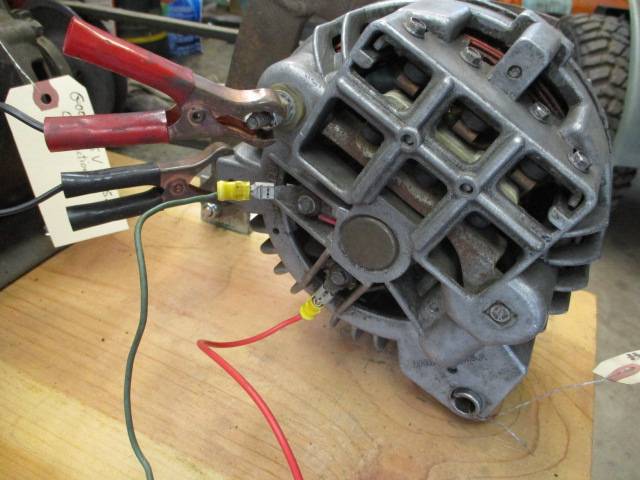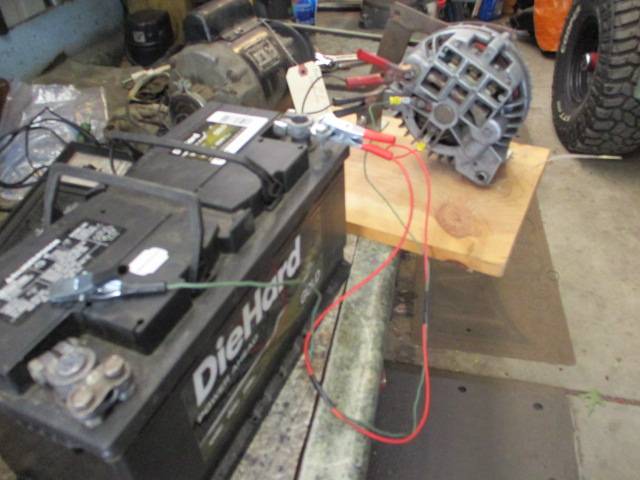An alternator will never generate more current than is needed by the demands of the electrical system
This is incorrect. If you full field an alternator, like the OP apparently did, it will put out maximum output regardless of load.
What controls the output of the alternator is the regulator and in the case of this setup there is no regulator and the alternator is hard wired to provide maximum output.
I once had a regulator fail on my and full field the alternator. Blew the over pressure caps off my Optima.
The statement " An alternator will never generate more current than is needed by the demands of the electrical system" is correct.
The regulator regulates voltage, not current. Current is the product of Voltage and resistance. The misunderstanding here is semantics.
CURRENT IS THE RESULT OF (Voltage level and resistance)
Assuming the
circuit resistance total (Rt) is fixed, then current will rise and fall as voltage rises and falls. Voltage goes up=current goes up. Voltage goes down=current goes down.
Now, assuming
voltage if fixed, current will rise and fall as Rt falls and rises. Resistance goes down=current goes up. Resistance goes up=current goes down.
The regulator regulates the duty cycle of the field from monitoring the voltage. If voltage is low then the regulator will increase the duty cycle of the field (more on-percentage, less off-percentage). If voltage output is high then the regulator decreases the duty cycle of the field.
Regardless, the amount of current that moves is directly controlled by the resistance in the circuit and the electrical pressure ie. Voltage.
E= Electromotive Force/measured in Volts
I=Intensity/Current/measured in Amps
R=Resistance/measured in Ohms
E=IxR (Voltage = Amps times Resistance)
I=E/R (Amps =Voltage divided by resistance)
R=E/I (Resistance = Voltage divided by Amps)
Ohms Law.

